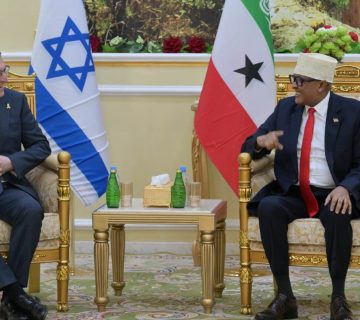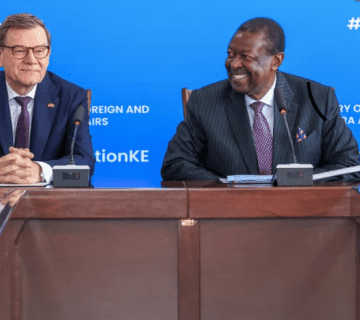For believers in the existence of God, the harmony in which the world and its ecosystems operate reflects a seamless architecture orchestrated by divine power. The delicate balance in the human body, the automatic functions of its systems, and the perfect regulation of essential processes exemplify a Creator’s meticulous design. The observable actions of God, such as maintaining life without discrimination, mirror the parable that actions speak louder than words. This should inspire us to see God’s words whether in the Quran, the Bible (Injil), or any other holy book—as equally balanced and free from favoritism.
Holy scriptures, particularly the Quran, were revealed more than 1,400 years ago to an Arab society vastly different from the global community that Islam has since embraced. This expansion introduced linguistic, cultural, and interpretational challenges that have influenced how the faith is understood today. The Quran is not an ordinary book, but rather a divinely inspired text requiring guided interpretation. It took Prophet Muhammad (PBUH) 23 years, under God’s supervision, to receive and deliver this scripture to humanity. God’s message in Quran [18:109] states, “If the ocean were ink for [writing] the words of my Lord, it would run dry.” This underscores the profound depth and layered meanings of the Quran, which demand scholarly interpretation.
However, challenges arise when verses are taken out of context or interpreted casually, especially by self-proclaimed “Google search scholars.” The danger lies in a rigid, surface-level reading of the Quran’s verses, which can lead to misrepresentation, particularly in this digital age.
The Misconception of Jihad by Islamists
The concept of jihad has been misinterpreted over centuries, often distorted by those seeking to justify violence. At its core, jihad represents a spiritual struggle—against one’s own ego, against societal injustices, and for self-betterment. It is a striving for the cause of God and has been addressed numerous times in the Quran and other holy texts. Historically, the Prophet Muhammad’s mission during his time in Mecca was marked by patience and non-violence, despite severe persecution. For the first 13 years of his prophethood, he refrained from warfare, instead embodying resilience and moral steadfastness.
The shift toward combat occurred after the Prophet’s migration (Hijra) to Medina, approximately 500 kilometres from Mecca. This followed the relentless persecution of his followers and his exile. Upon reaching Medina, the Quran granted permission for Muslims to engage in self-defence. Importantly, the Quranic verses sanctioning combat were revealed with specific, contextual conditions, emphasizing restraint, fairness, and the protection of innocents.
For instance, Quran [22:39] states: “Permission to fight back is hereby granted to those being fought, for they have been wronged. And Allah is truly Most Capable of helping them prevail.” Similarly, Quran [22:40] mentions: “They are those who have been expelled from their homes for no reason other than proclaiming: ‘Our Lord is Allah.’” These verses highlight the defensive and reactive nature of early Islamic military engagement.
Unfortunately, extremist groups exploit such verses, taking them out of context to justify violence. For example, radicals often cite Quran [9:5], which commands fighting only those who violate treaties and agreements against Muslims. However, they disregard the historical circumstances of these revelations and instead promote misinterpretations for recruitment and propaganda. This shallow approach to Quranic exegesis creates a fertile ground for dangerous ideologies.
Addressing the Global Radicalization Crisis
Today, the world faces an ever-increasing wave of global radicalization fuelled by ignorance, misinformation, and a lack of understanding of religious texts. This alarming trend threatens not only peace and stability but also the foundations of coexistence and tolerance. Extremist ideologies have exploited modern tools, such as digital platforms, to spread their narratives rapidly, often targeting vulnerable individuals, particularly the youth.
It is imperative that scholars, intellectuals, and institutions of repute take the lead in addressing these challenges. The pen remains mightier than the sword, and through comprehensive education and the dissemination of accurate information, the tide of radicalization can be stemmed. Religious scholars, universities, and centers of learning must spearhead campaigns promoting tolerance, mutual respect, and dialogue. They should work collaboratively to deconstruct extremist narratives and present religious teachings in their true essence focused on compassion, justice, and coexistence.
Institutions like the National Counter Terrorism Centre (NCTC) have a pivotal role to play in this global effort. By fostering partnerships with civil society, faith-based organizations, and educational institutions, such centers can amplify their impact and ensure that communities are equipped with the knowledge and tools to resist radical ideologies. Public awareness campaigns, interfaith dialogues, and inclusive educational programs are essential to creating a society resilient to extremist propaganda.
Reclaiming the True Meaning of Jihad
To combat the misuse of Islamic teachings, Muslim scholars and leaders must reclaim and articulate the true meaning of jihad. It begins with proper education—teaching communities that jihad is not synonymous with violence but rather a call to self-improvement and social justice. Collaborative efforts among religious scholars, civil society, and governments are essential to dismantle extremist narratives.
As we navigate the complexities of modern life, it is imperative to approach the Quran with the guidance of qualified scholars who can unravel its meanings responsibly. Only through collective efforts can we counter the dangerous misconceptions surrounding Islam and its teachings.
The Path Forward: Building Peace Through Tolerance
The fight against violent extremism must be rooted in tolerance and the pursuit of peace. By addressing the root causes of radicalization such as the ideology, poverty, marginalization, ignorance and injustice, we can create a more stable and harmonious society. This requires the commitment of all stakeholders, from religious leaders to policymakers, to invest in long-term solutions that address both the ideological and socio-economic drivers of extremism.
In conclusion, jihad should, first and foremost, be understood as a call to virtue, patience, and resilience. The fight against violent extremism begins with correcting these misconceptions, fostering mutual respect, and promoting the universal values of compassion and justice. Let us remember that the Quran itself calls for balance and warns against excess, urging us to embrace the true essence of God’s message a message of peace for all humanity.
Photo Credits:
Col Yahya Abdilkadir Mohamed is an associate fellow at the HORN Institute
The views expressed in this article are those of the authors and they do not necessarily reflect the position of the HORN Institute.



